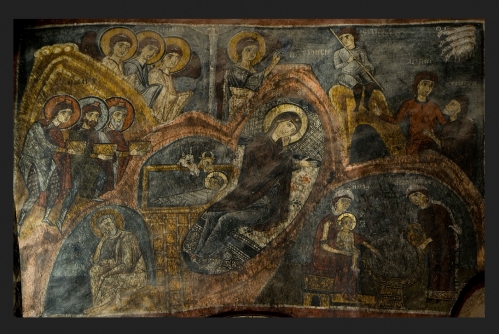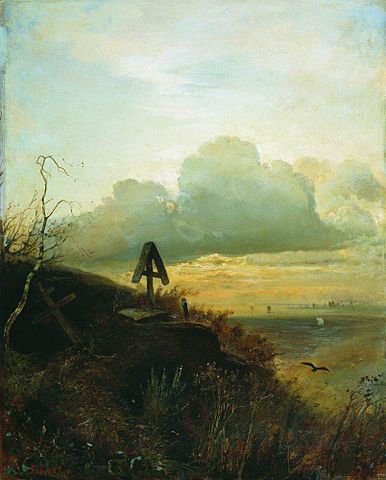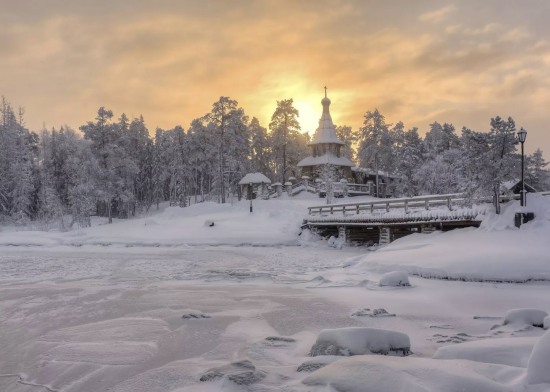 Fresco of the Nativity, from a 10th-century
Fresco of the Nativity, from a 10th-century
Byzantine cave monastery.
Fallen Leaves wishes its readers, whoever they may be, a merry Christmas according to the Julian calendar.
“The days of our years are threescore years and ten; and if by reason of strength they be fourscore years, yet is their strength labour and sorrow; for it is soon cut off, and we fly away.” So little has changed in three thousand years! “As for man, his days are as grass: as a flower of the field, so he flourisheth. For the wind passeth over it, and it is gone; and the place thereof shall know it no more.”
But it is not our physical impermanence that most shows our transitory nature — it is the impermance of our memory. As we recently observed, the “factual” events of our lives begin to be overwritten by our memory immediately after they take place. The complete form of these visual and sensory fragments, the form in which they enter into our conception of ourselves and our individual experience, is a work of fiction, or art, if you prefer. However beautiful it may be, it is completely insubstantial, and is bound to dissipate over time, like mist. As our memory fades, it pulls us into nonbeing along with it. Eventually we stop resisting because it does not seem worth it to continue — everything we cherished has long passed onto the other side. It is in our memory that the world becomes most beautiful, and therefore we only truly feel the pain of loss when memory itself begins to grow dim.
Yet, there is a comfort in this frailty as well. One does not need to regret having to leave the world if one has already outlived it, if there is nothing recognizable that one is leaving behind. On the contrary, it might feel rather more like returning home. For the same reason, there is no longer any great pull to be remembered — instead, one may find solace in the world’s serene indifference. The old atheist straw man is that people invented religion to avoid having to face their mortality, but fear of death will never make one religious. One first has to fully accept mortality, to value it, before any notion of eternal life can be meaningfully brought up.
 “Tomb on the Volga, near Yaroslavl,” Alexei Savrasov, 1874.
“Tomb on the Volga, near Yaroslavl,” Alexei Savrasov, 1874.
Christ saved mankind by His death on the Cross; therefore, there must have been something worth saving. Perhaps it was not some particular, individual attribute of mankind — for example, the capacity for kindness prayer or charity — but the essence of human life itself, the miraculous existence of an individual consciousness that is limited, different from that of God, less than that of God, and yet still resembling that of God. That is the meaning of the Nativity, in which God not only became man, but chose to adopt the entirety of mortal life, which ends with death but begins with birth. St. Isaac of Syria wrote, “The death of our Lord was not for our redemption from sin or for any other purpose but to make the world know the love that God has for all creatures.” Perhaps it extended not only to the creatures themselves, but to the essential condition of each creature — the beauty and sorrow of individual consciousness, which feels so deep, and yet is so tenuous, which disappears without a trace and for that reason may be worth preserving. The birth of Christ in a manger proves that it is birth itself that possesses inherent value, rather than the outward circumstances of it or the eventual outcome of one’s life.
Metr. Anthony of Sourozh in 1968
 Christ is Born! Христос раждается! Христос се роди!
Christ is Born! Христос раждается! Христос се роди!
Came for the Father Seraphim series….stayed for all the rest. Please keep writing more. I’ve re-read a few of your essays as well. Very intrigued by your idea of a single concept animating a culture. Hope you elaborate further on your thesis that for American culture, that idea is ‘destruction’. Best wishes to you.
LikeLike
Glad to have you with us. I elaborated on that idea indirectly in a few places (Orwell).
LikeLike